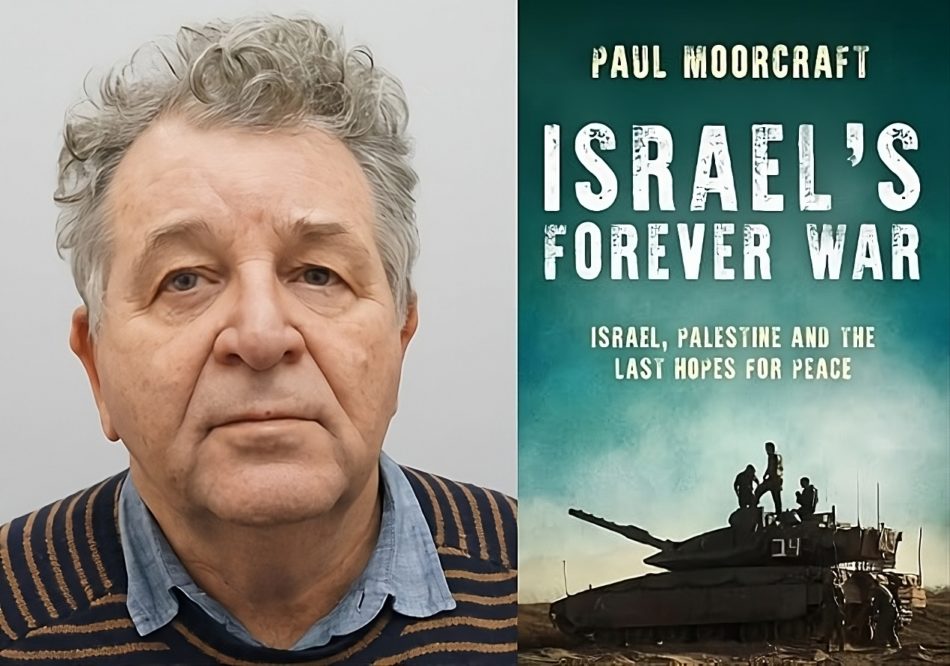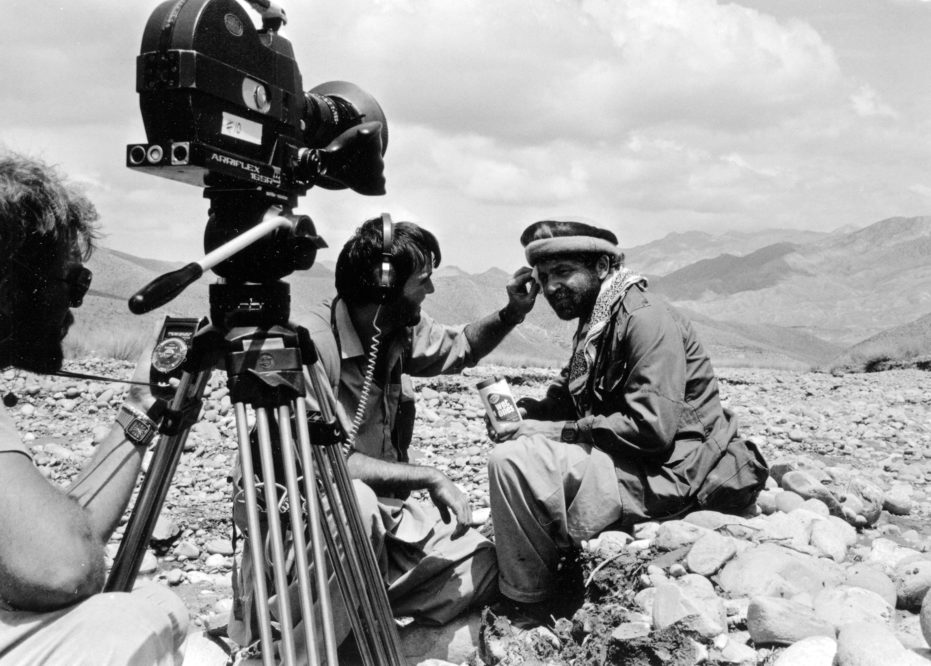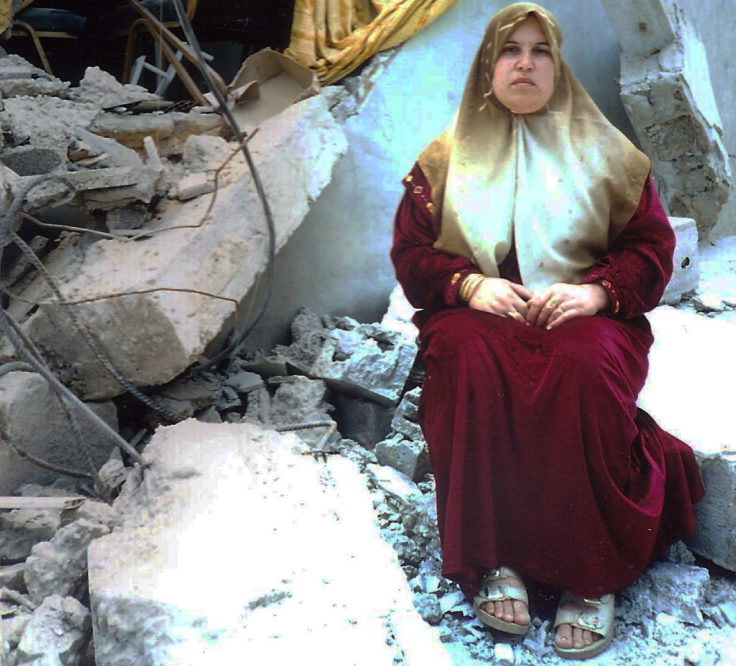On Being a Writer in Wales: Paul Moorcraft

Paul Moorcraft
I returned to Wales after 40 years away. Penarth to be precise. And suddenly found myself in the middle of savage wars. And not about the very limited parking in the town.
Well, that’s what it seemed like.
Three books came out in just over a year. Firstly, a book about Churchill’s German-speaking secret Jewish army, some of whom trained and lived in Aberdyfi. Then came a book on the war in Ukraine. Then in the last month my book on the Middle East came out: Israel’s Forever War.
None of my friends or neighbours in the busy pubs and restaurants of comfortable Penarth seemed to know much about the two regional wars in Europe and the Levant. I will risk saying few seemed to care away from the college campuses.
As the world heads for a possible third major regional war – the swallowing of Taiwan – as well as all the terrible conflicts in places like Sudan that the media largely ignore, I wonder if the West can survive, especially if people have to give up their Apple gadgets with the loss of advanced Taiwanese chips.
Before I moved to Penarth I had lived next to two pubs. And suddenly I realised that my part of Penarth was almost completely dry as though Puritans had taken over 100 years ago and closed all the boozers. And most of my Penarth acquaintances seemed largely teetotal coffee-morning enthusiasts. It’s an old quip – but I am a drinker with a bad writing habit. I like to work hard all day and have a few beers in good company on some evenings. Not all.
What was even more difficult was writing about wars smack in the middle of them. I had managed to do that about the Ukraine conflict; and I even suggested a way to end the war. Cheeky, I suppose, an old fart scribbling in Cymru and offering solutions to world leaders. I did the same with my book on Israel. But I am not holding my breath waiting for a Nobel Peace Prize.
I changed publishers and got a contract within a few days of the Hamas attack on 7 October 2023. I felt I had something to contribute.
I was very moved when an Israeli special forces officer said to me just after 7 October: ‘We are a broken-hearted nation, but we are not a broken nation.’
I first went to Israel in 1970 and then went back on a small scholarship in 1975 to write about the mechdalim, the Israeli errors in the 1973 Yom Kippur War. Now the Israeli hubris had returned with a vengeance 50 years later.
I also tried to learn Hebrew in Israel using their immersion method partly because it could be applied in Wales to the hen iaith. I never really mastered either tongue even though I had some knowledge from my time as a Plaid local councillor. I did learn some Arabic, however, which was useful as a regular contributor to BBC Arabic and Sky Arabic.
I cared about the wars in the Middle East As a student I had lived in the Arab quarter of old Jerusalem – the most magical city in the world; and I had lived near Sderot, right on the Gaza border. I also spent six months living in pretty Kibbutz Baram, just a mile from the Lebanese border. It was the last kibbutz to give up collective child upbringing.

In case I am accused of bias, I am one of the few Westerners who has survived being in daily combat alongside Jihadists in Russian-occupied Afghanistan. I preferred to carry a camera, not a gun (though I had been an instructor at Sandhurst, a sort of Hogwarts with guns). I spent time with armed Islamists, briefly in Sarajevo, and far more time in Sudan. I categorically did not work with Hamas.
The point is I had a reasonably wide hinterland to write about the war. I had made a TV film while with the UN troops in Lebanon. I had also been smuggled by the Palestine Liberation Organisation into the famous Israeli siege of Jenin in 2002. Arrested three times, along with journalist colleagues such as Marie Colvin and Lindsey Hilsum, I said quietly in my broken Hebrew to the Israeli colonel who was about to deport us, that kicking out well-known hacks like Marie was not good PR.

‘Good PR has not saved a single Israeli life,’ he said aggressively. He was totally wrong. Luckily a CNN team was arrested with us and after they phoned the US ambassador we were not frogmarched to the airport.
Israel has lost nearly all its friends in the last year. Even the Americans are very iffy. I write this on the day of the US election results. Donald Trump will have a big impact on the current wars especially Israel, where Washington holds most of the cards.
The war is being continued because of religious nutjobs on both sides. Hamas is as ardent as the Islamic State and with similar aims. Benjamin Netanyahu leads the most far right religious extremists in the history of a country that has been at war since 1948.
I have interviewed Netanyahu on a number of occasions. In private he is very affable and very smart with his perfect command of American English.
But extremists on both sides need to go.
Hamas may be popular in Palestine, Tehran and some Western campuses but it is generally loathed by most Arab governments. Egypt recently massacred 10,000 Muslim Brothers, whence came Hamas. Because Egypt, Jordan and the Saudis, for example, as well as the usual suspects of Britain and America, helped to protect Israeli air space during recent Iranian missile blitzkriegs, this is the basis for a settlement. And the only one is a two-state solution.
I explain in detail how this once-dead parrot can be revived, after there is a ceasefire in Gaza and surviving hostages are finally released.
I went from the gangs of Ely – via Sandhurst and Soweto – to bigger, better armed gangs in Afghanistan and Iraq. Now I am finding some peace in Wales to write about the prospects for Israeli peace.
Paul Moorcraft’s latest book, Israel’s Forever War is published by Biteback Publishing. It is available from all good bookshops.
Support our Nation today
For the price of a cup of coffee a month you can help us create an independent, not-for-profit, national news service for the people of Wales, by the people of Wales.





